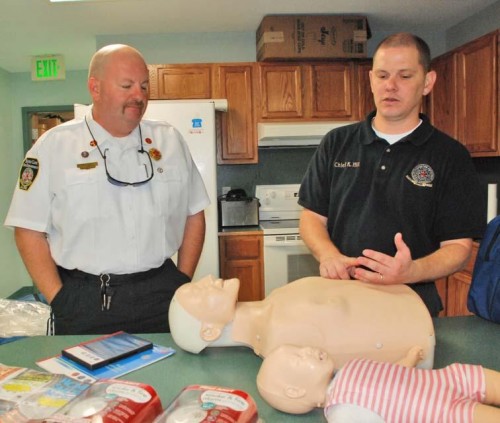
Officials not laughing at Spencer’s gifts
October 5, 2010
Bayou Cane uses grant money for fire safety
October 7, 2010Louisiana bills itself as the Sportsman’s Paradise, yet only one in 25 visitors to the state cited outdoor recreation as the primary purpose, only half the national average, according to the U.S. Travel Association.
“That shocked me,” said state Lt. Gov. Scott Angelle, whose office oversees the state Department of Culture, Recreation and Tourism.
“Our neighboring states are doing better than we are. That is something we have to change.”
Angelle led an effort to do just that recently, as tourism leaders from across the state gathered in Lafayette for a nature-based tourism summit.
The meeting sought to identify challenges and propose solutions to boost eco-tourism in the Bayou State.
With vast coastal wetlands, a national forest and ample opportunities for outdoor recreation, Louisiana’s relatively low share of nature-based tourism is somewhat of a mystery, Angelle said.
Damage from recent hurricanes could be a factor, but the trend started long before Hurricane Katrina, he said.
“I think we take (natural resources) for granted. It’s not something we put an emphasis on,” Angelle said.
“As a result of that, perhaps we haven’t marketed and advertised in the most effective ways.”
Louisiana’s charter fishing industry took a hit after Katrina in 2005, and again recently with the BP oil spill, Daryl Carpenter, president of the Louisiana Charter Boat Association.
While there are still plenty of fish to be caught, outsiders often have a different view, he said.
“The amount of saturation that the whole country has had about this oil spill has totally ruined anybody’s appetite for visiting South Louisiana when it comes to outdoor (recreation),” Carpenter said.
“We’ve got to start fighting that perception, or it’s going to be five years before our group starts coming back.”
Another obstacle may be the state’s own inclination to protect untouched lands and waterways from tourism and development, said Celeste Gomez, director of the St. Landry Parish Tourist Commission.
“We want to make it accessible, but we want to make sure it’s preserved and respected, too,” she said.
One common challenge identified at the summit was a lack of focus on nature-based tourism. While states like North Carolina and Wisconsin are making a concerted effort to promote their natural resources, that hasn’t been the case in Louisiana.
“Maybe it’s because (hunting and fishing) are such an integrated part of our everyday life. We don’t realize it’s a unique opportunity unlike anywhere in the United States,” Gomez said.
Angelle proposed creating a nature-based tourism program within the state Department of Culture, Recreation and Tourism.
The program could utilize performance indicators to measure different types nature-based tourism, and devote funding and infrastructure to areas of need.
Angelle also suggested using funds from the BP oil spill to promote nature-based tourism efforts along the state’s coast.
The state recreation department is also working to create the Louisiana State Parks Foundation, which would solicit corporate sponsorships and tax-deductible donations to the state’s parks system.
“One thing we have found in our research is that folks feel very positive about their state parks,” Angelle said.
“We plan to get out there and give people a chance to associate themselves with this premier product.”









